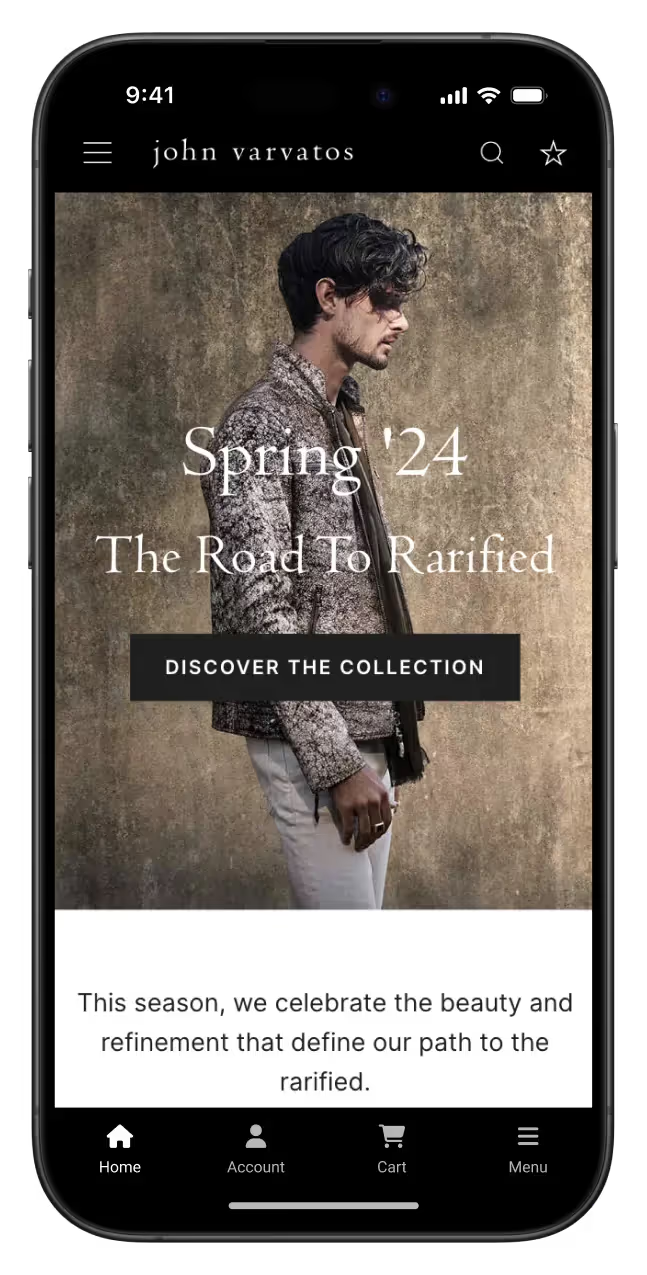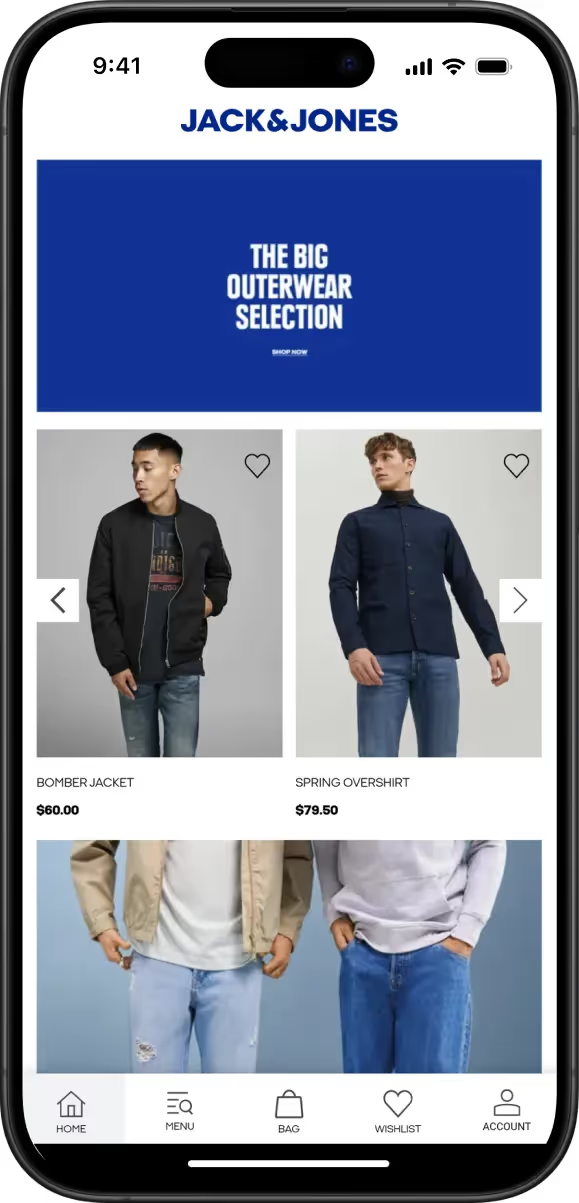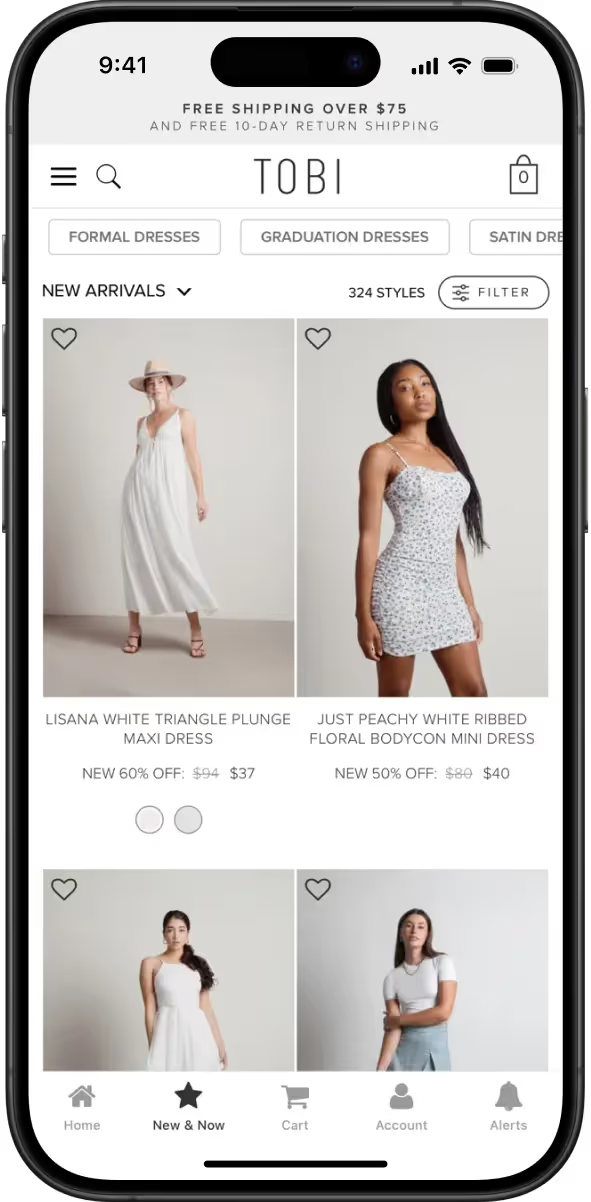Launch a Premium Mobile App for Your Salesforce Commerce Cloud Store
- Fully synced to your SFCC storefront and backend
- Works with your existing integrations and site features
- Fully managed from build to launch (and beyond)


The premium mobile app service built for Salesforce Commerce Cloud brands

All the upside of native apps, without the enterprise drag
Custom app development is too complex and expensive.


Agency-built mobile apps introduce long-term overhead


Keep Everything From Your Website, Launch your App in 30 Days

Full feature parity with your Salesforce Commerce Cloud site
Website and app stay in sync automatically


A managed alternative to agencies and internal builds
Improve retention with a direct line to your best customers
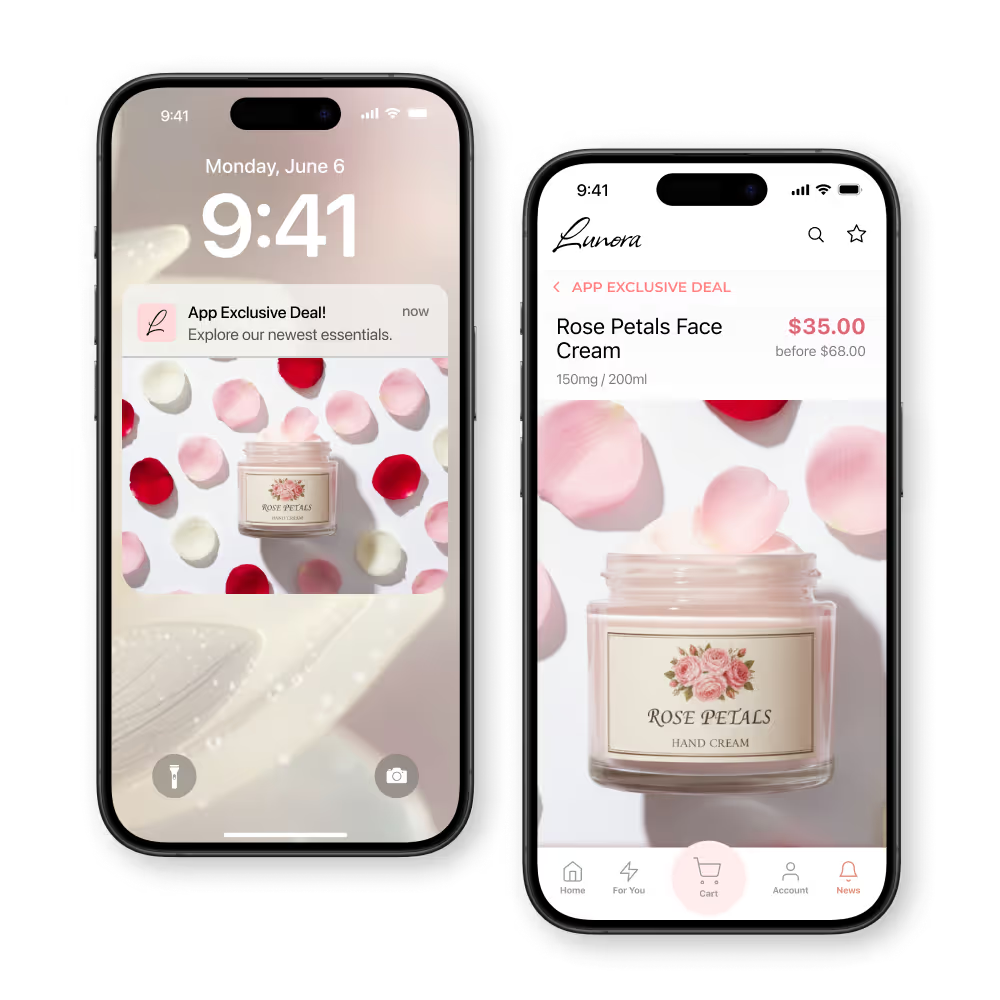

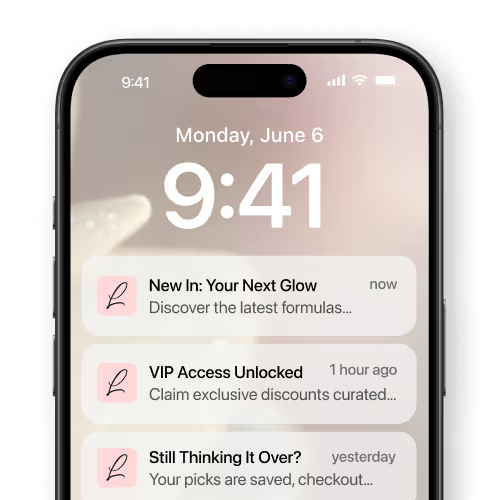







Leading brands get better apps at a fraction of the cost



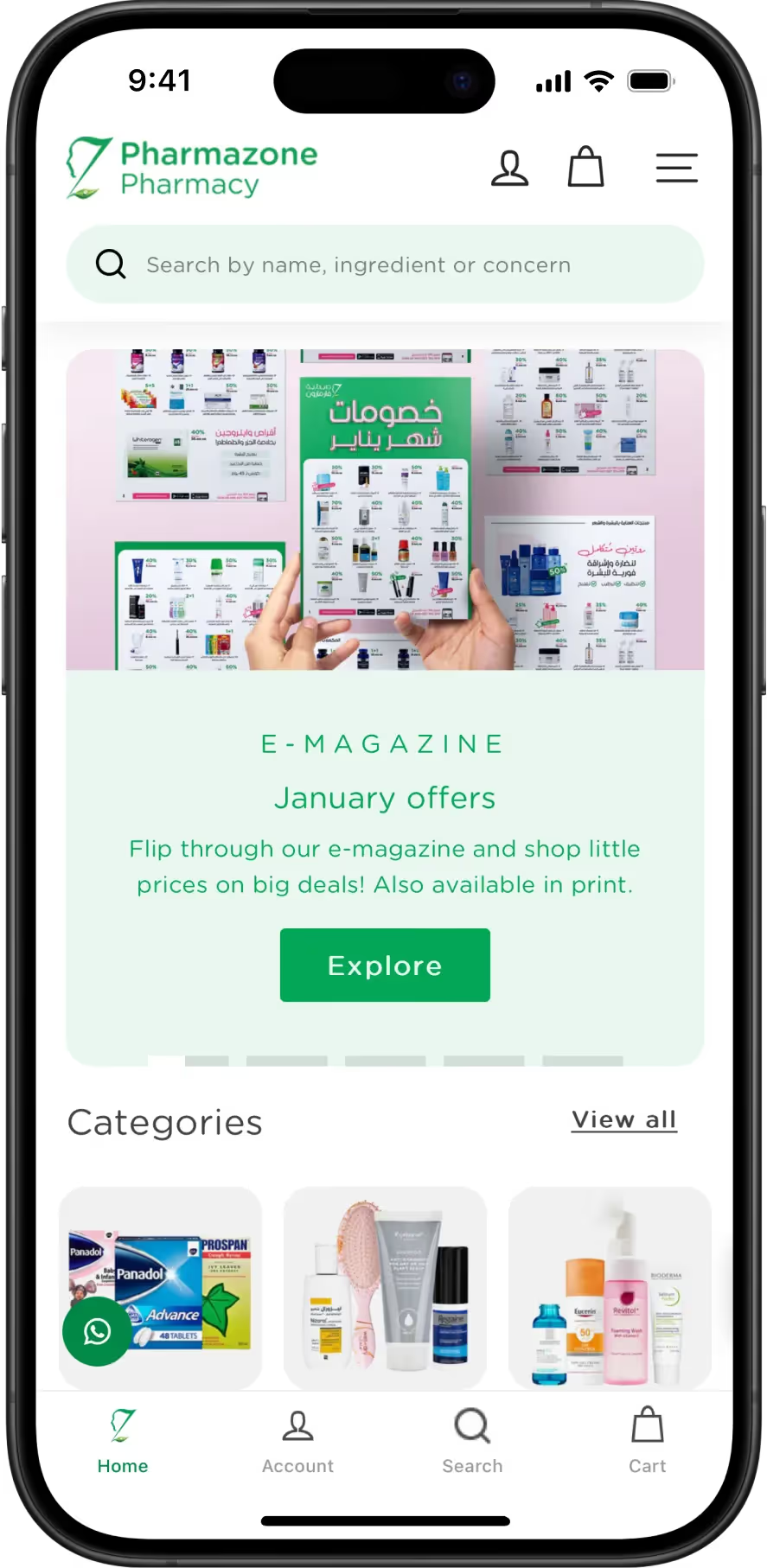

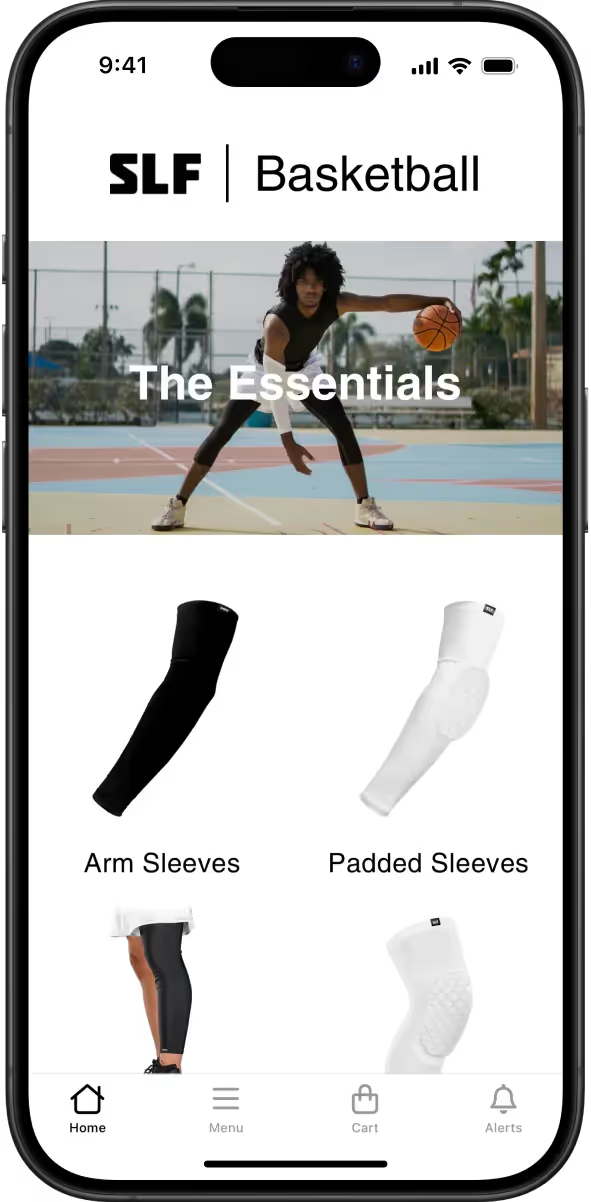


Convert your SFCC store into a mobile app




FAQs - Salesforce Commerce Cloud Mobile Apps
What native mobile features are included with MobiLoud Salesforce Commerce Cloud apps?
MobiLoud apps include all the native mobile features any legitimate app needs, such as push notifications, native navigation & tab menus, and a custom welcome screen. You can also enable app-only pages, and all the key features from your website (including one-tap checkout) work seamlessly in your app.
Do I need to maintain separate inventory and product catalogs for my mobile app?
No, MobiLoud keeps your app automatically synced with your website’s inventory and product catalog. There is no need to maintain separate systems.
How does MobiLoud handle Salesforce Commerce Cloud's personalization features in the mobile app?
MobiLoud ensures that all personalization from your Salesforce Commerce Cloud site, like customer-specific recommendations and promotions, carry over seamlessly to the mobile app. As a rule of thumb, if it works on your site, it will work in your app too, extending to all your tracking and UX tools.
Can I customize the design and branding of my Salesforce Commerce Cloud mobile app?
Yes, MobiLoud allows full customization of your app’s design and branding so it matches your website. You have complete freedom to build the experience you want through your web platform, and your design will carry through to your app. In addition, you'll be able to customize the native elements of your app through our dashboard, and we can help you to show or hide specific elements for app users.
What happens to my existing Salesforce Commerce Cloud integrations when I create a mobile app?
All your existing Salesforce Commerce Cloud integrations, including custom features and third-party tools, continue to work seamlessly within the mobile app. There's no need for custom integrations, pre-built API integrations or modules. Everything on your site works in the app, out of the box.
How do push notifications work with Salesforce Commerce Cloud mobile apps?
MobiLoud uses OneSignal or Klaviyo to enable unlimited push notifications from your Salesforce Commerce Cloud mobile app. We built this natively into your app, and there's minimal setup required from your team. You can automate push notifications through either of these platforms, and our team can help you set up and manage these flows for maximum impact.
Do mobile apps built with MobiLoud support Salesforce Commerce Cloud's B2B functionality?
Yes, MobiLoud supports Salesforce Commerce Cloud's B2B features, ensuring both B2B and B2C functionalities work seamlessly in the mobile app.
What analytics and reporting are available for my Salesforce Commerce Cloud mobile app?
MobiLoud provides integrations with Google Analytics, Firebase and Looker Studio to help you track the impact of your app. We'll set up tagging for app users and app sessions, so you can view this data next to your website data. Additionally, if you have any other tracking and analytics tools on your site (e.g. Triple Whale, Northbeam), these will work in your app the same way.
Note that you always own your app data. We never limit you from accessing this data or taking it with you if you move to another platform.
How does checkout and payment processing work in MobiLoud Salesforce Commerce Cloud apps?
Whatever checkout and payment systems you have on your mobile Salesforce Commerce Cloud store will work just the same in your mobile app. That means Apple Pay, Google Pay, and any other payment methods (BNPL, custom solutions), all work in your app by default.
Can I run A/B tests on my mobile app like I do on my Salesforce Commerce Cloud website?
Yes! You can easily run A/B tests on your mobile app using your existing conversion rate optimization tools. With app-specific tagging, and automatic integration of all your web tools, you use the same systems you use for your website to test any part of your mobile app experience.
What technical requirements do I need to meet for my Salesforce Commerce Cloud site before creating a mobile app?
We don't require any specific technical requirements. You don't need any kind of headless architecture or API endpoints for the app. It runs on your live website, no matter how it's set up. Just make sure your site is fast, responsive and mobile-friendly, to maximize the quality of your mobile app.
How do returns and customer service work through the mobile app?
Customer service and returns run through the same systems as your existing Salesforce Commerce Cloud store. Whether you use a third-party tool like Intercom or Gorgias, or have a custom setup, the app is fully integrated with this system. There's no siloing of support requests, no separate platforms to manage.
How long does it take to convert a Salesforce Commerce Cloud website to a mobile app?
You can turn your Salesforce Commerce Cloud website into a mobile app in less than 30 days, (potentially as little as 2 weeks) with MobiLoud.
This is often how long it takes to make design adjustments, add native features, and adequately test your apps to make sure they are ready for launch.
Once submitted, the approval process can take anywhere from 7-10 days when you factor in any feedback and changes requested by the app store QA teams.
Do MobiLoud apps support Salesforce Commerce Cloud's multi-site and international capabilities?
Yes! MobiLoud supports multi-site and international features, allowing you to run apps across multiple regions and languages, as well as different setups for B2B/D2C, wholesale/retail, or any other reason you may have separate storefronts to integrate in one app.
Learn more about how we support multi-configuration setups here.
What ongoing maintenance is required after launching my Salesforce Commerce Cloud mobile app?
Your mobile app stays fully in sync with your website by default. When you make a change on your website, your app updates automatically, removing the need for any duplicate content management. MobiLoud handles any app-specific maintenance for you, allowing you to maintain your focus on the website and on your overall business.
What happens to my users if I switch to MobiLoud from another platform?
Switching to MobiLoud from another platform is easy, and your users won’t experience any disruption. Your app will be published as an update on the App Store and Google Play Store, so your existing users will automatically receive the new version on their devices without needing to re-download or take any action.
MobiLoud gives you full control and ownership of your app and user base. You’ll use your own App Store and Google Play developer accounts, ensuring you stay independent. If you ever decide to move away from MobiLoud, you can take your app and users with you, keeping everything under your control.
How much does it cost to convert my Salesforce Commerce Cloud store into a mobile app?
The exact cost varies depending on your specific requirements (such as multi-storefront setups, custom SLAs and multi-language support). Our experts will give you a custom quote based on your needs, but it's likely to be less than $2,000 per month - definitely lower than what you'd pay for a custom app built from scratch.
Learn more about our pricing here, or book a consultation to discuss your project and your needs.








